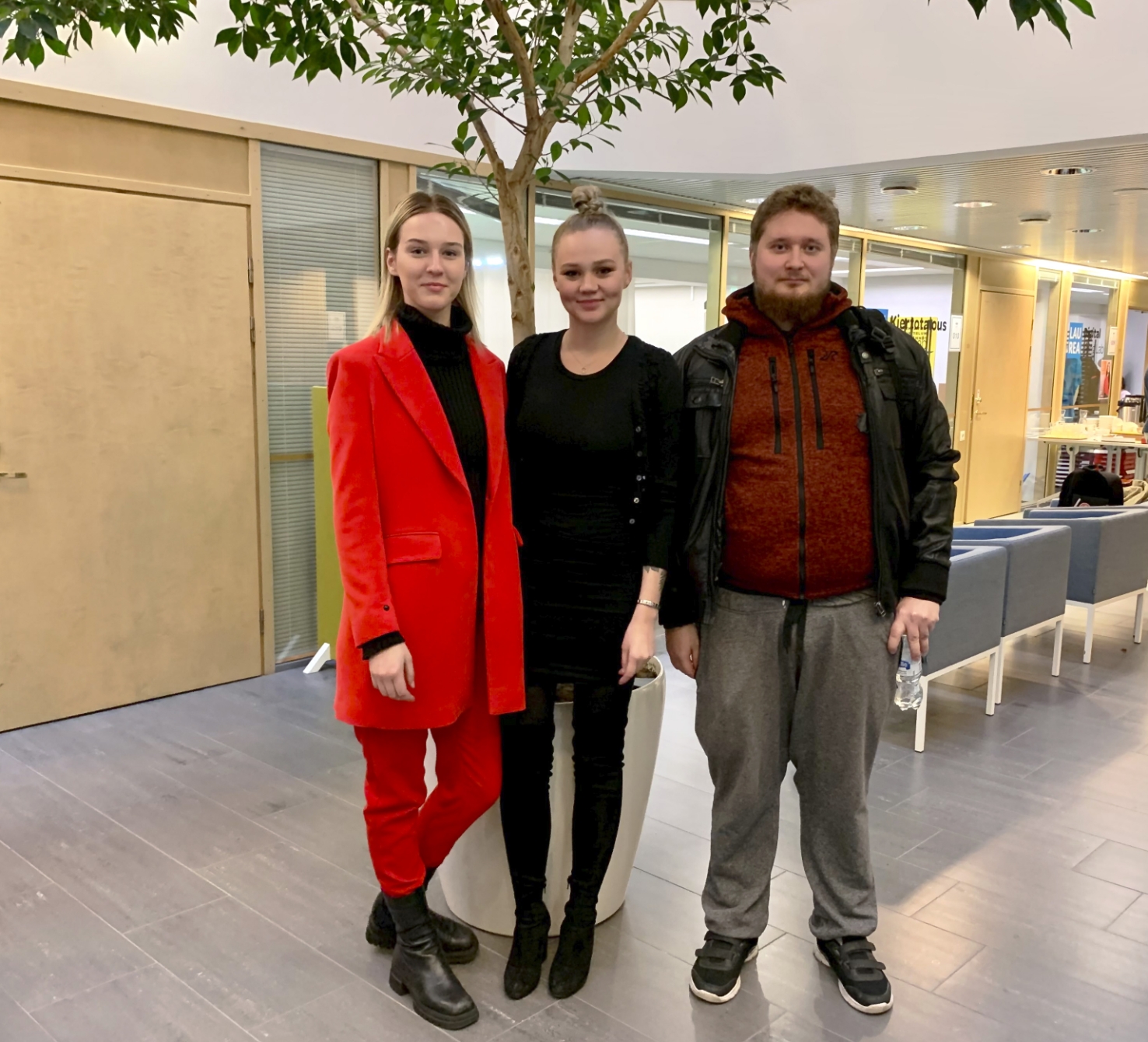Technology solutions to global challenges sought at Nokia Student Network Hackathon's Laurea event
The local competition of the Nokia Student Network Hackathon was organized at Laurea's Leppävaara campus. The theme of the innovative competition was to find solutions using technology to meet global challenges.

Nineteen Laurea students took part in the local event of the Nokia Student Network Hackathon on 25 October. The aim of this hackathone was to develop technology to address the world’s challenges.
During the day student teams utilised their versatile talents and creativity and challenge themselves to develop solutions to a set problem in a limited amount of time, and they were also expected to create a demo, model, or presentation at the end of the day to present to the jury.
Nokia is holding a local Student Network Hackathon this autumn at ten universities and universities of applied sciences. The winning team of each local hackathon will be taking part in the main competition at the Espoo Metro Arena in mid-November.
The Laurea hackathon was held at the Digital Living Lab on the Leppävaara campus with four Business Management and Information Technology teams participating.
Solutions to global problems
The theme of the Nokia Student Network Hacktahon is utilising technology to find solutions to global challenges: the constant growth of pressures of different kinds facing our planet, the slowing of industrial productivity, and the inequality connected with working life, education and health care.
In the solutions that they developed, Laurea's teams focused on reducing emissions and using less natural resources and on the possibilities for equality in occupational working life, health care and education. As keys for the solution, participants were asked to consider the mobile network and the IoT, the Network as Code, cybersecurity, 5G, and the public cloud.
Participants had a total of five hours to develop a solution to a challenge linked with the overall theme, but which was not given until the beginning of the day, and to create a brief presentation of their idea.
Digital Living Lab Coach Asko Mononen, a lecturer in Information Technology at Laurea, describes the work of the students as active and inspired.
“The students quickly took possession of difficult topics and brought points of view on ways to solve whatever was sought here”, he says.
The uniqueness of the idea to be developed, consideration of the market and monetary effect, and the technical implementation of the solution were key angles to be considered in the work.
At the end of the day the judges selected a winning team to take part in the final to be held on 18–19 November. The team that wins in the final will be invited to work in the summer at Nokia Bell Labs, a winner of multiple awards.
A challenging and rewarding way to learn
Asko Mononen says that the event carried out by Nokia is eminently compatible with Laurea's Learning by Developing model and with the purpose of the Living Labs learning facilities, which is to create conditions for learning that are similar to those to be found at work. Mononen describes the event as a great opportunity to learn and to gain performance experience.
Emmi Järvinen and Gabija Bagdonavičiūtė, both students of Business Management, found the day to be rewarding.
“The hackathon offered opportunities that would not have happened if we had not participated”, Järvinen says.
Information Technology student Arvi Klemetti also found the hackathon to be a good experience. For example, he says that his knowledge about virtual reality related to the solution created by his own team increased on the day of the hackathon.
Participating students felt that all in all, the hackathon was a valuable educational experience for both developing and utilising their own skills. Järvinen and Bagdonavičiūtė made special mention of the importance of time management and teamwork skills when working together to solve challenges.
“We also need to know how to seek information, to conduct research, and to think outside the box”, Järvinen adds.
The time limit that was given for developing a solution and setting up a presentation gave the activity a clear framework, while posing a challenge. Klemetti observes that there are advantages to having the ability to operate under pressure.
Bagdonavičiūtė says that the time limit also provided experiences of success:
“We learned that it is possible, even in a short time, to achieve much and that we are capable of doing it!”
The connection with the world of work and its representatives
A direct connection with the world of work was an important result of the Nokia Student Network Hackathon both in Mononen's view and that of the participating students.
“Networking was another reason why I joined in, and it was also interesting to hear what Nokia expects from the future”, Klemetti says.
Hammad Shahid, Cloud RAN Engineer at Nokia says that one of the aims of the hackathon is to offer students the chance to see what kinds of things the company works with.
The hackathon whole is also important for Nokia: the organised event is one way to achieve closer cooperation among educational institutions:
“New people with talent come from universities and from universities of applied sciences, so it is important for companies to establish connections in that direction”, Sahid observes.